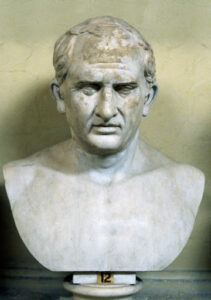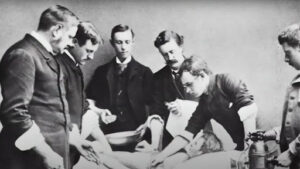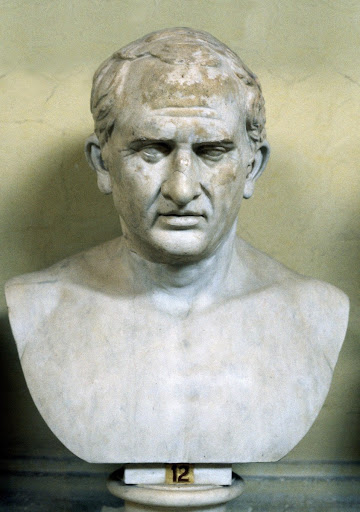I have always loved history. It seemed quite interesting, and I never searched for a reason. However, something completely changed my perception. I spoke to a few friends, and one of them protested, “History is useless; we will never use this information in the future.” I instantly disagreed and explained that it was extremely important in our lives. Still, I didn’t have a reason other than relishing it, and that is why I decided to write this article: to justify the notion that history is, in fact, significant and valuable for everyone.
Firstly, let us define history. It is the study of past events, particularly in human affairs. But doesn’t the old saying go: “Never look back”? And isn’t dwelling on the past pointless? Well, the answer is quite simple; these quotations mean that you should not regret and spend your time pondering about history and disregarding the future. People can still learn from the past without constantly thinking about how it could have been changed.
Secondly, let me mention an enormous difference between the minds of animals and humans. The difference is that humans can quickly be informed and later, recall the mistakes of others to help them in life. For example, a man ingested a berry, and later, died from it. After looking at the man’s history, a myriad of people soon realised that this berry is poisonous and, therefore, they were discouraged from eating it. Animals, on the other hand, must depend merely on their experience to survive in a particular area. They can communicate with their mother through signals, who can warn them of certain dangers, but they cannot read from a history book and learn from the experiences of thousands of others who lived hundreds of years before.
A scientist has never done all of their research on their own. Instead, they would often examine the history of the scientists before them, including their answers, and make significant discoveries. The findings were contrived not only because they studied a specific science but also because they looked at history, and that ended up giving them more knowledge than they could have ever found out on their own.
The time we are living through is unique in the sense that 2022 has never been lived through before. But the circumstances we are living through now (specifically plague/post-plague – whatever it truly is) have been lived through countless times.
Although “unprecedented” has become something that people seem to always use in the current political state, it is inaccurate to describe our present moment.
“To be ignorant of the past is to be forever a child. ” Cicero

Why Study the Past When All We Have Is the Future?
It is a valid point and one quite challenging to defend. Being stuck in the past can obscure the present which is simply an unfavourable thing. But acknowledging it, learning from it, and using this to inform the present is not.
Studying History gives you an understanding of the wider world beyond your bubble. It challenges your viewpoint and exposes you to societies, cultures, and, thought processes from all around the globe.
If this is the only thing you take away from it, rather than remembering the factual knowledge, it has done its job.
Above all, History is the study of thought processes. The main job of a Historian is to present an argument and display a coherent thought process backed up with evaluated historical evidence.
Despite what people may think, History is not precisely what it seems. The dates and stories are often biassed or misunderstood, and we honestly have no way of knowing what is true and what isn’t. But that is absolutely fine. We don’t need these facts because, in the end, that isn’t what history is truly about.
History Can Inform the Present
At its core, History is about facts, events, and occurrences from the past. The past is as early as yesterday but stretches back thousands of years. What we have today is inevitably shaped by history which is easily forgotten in day-to-day life.
It would be easy to say that it repeats itself due to the regular occurrence of war, famine, and disease. Although this is true, we continue to face some of the same struggles as societies before us but to say that the present is a mere continuum of the past is slightly preposterous.
Humanity is an element that is repeated but the problems we face and how we deal with them constantly change.
Conversely, pandemics and diseases are not “unprecedented” as they have occurred regularly throughout history. Even today, we use the exact coping mechanisms as more primitive societies before us. For example, self-isolation and quarantine were used during the Black Death, Smallpox, the Great Plague, and the Spanish Flu of 1918. Yet, politicians constantly told the public that we live through “unprecedented” times. Although the pandemic would be difficult to handle for any government, suggesting that pandemics are not predictable is wrong. We have been due another one for quite some time, over a hundred years.
This isn’t to suggest that history is a mere repetitive cycle, but it points to the idea that often, our past can inform our future but manifest itself in different ways.

Do All People Use History?
I think all of us have sat in, for instance, a maths class at least once and thought to ourselves: “Why on Earth do I need to know this?” but when we pay attention to the world around us, we notice that we subconsciously use these tools in our daily lives. Maths is used everywhere. To pay for your coffee, to tell the time, to find out how you can equally distribute your 45 watermelons to your nine friends (actually, that last one is a tad bit less realistic). How do we use history in our daily lives, and do people of all jobs and professions study history?
Now, imagine yourself in a physics classroom. Your teacher is explaining about how Sir Isaac Newton discovered gravity. At first, you may think that this is merely the study of physics, but isn’t talking about the experiences of this man considered history? Why is this teacher speaking about this random man who had an apple fall on his head centuries ago? Well, that is a great example of history intertwining itself with other subjects. We are learning about the history of physics to teach us how modern physics was created and help us understand it in an easier way. Last week, my grandfather, a surgeon, spoke about Ignaz Semmelweis who discovered how bad hygiene in hospitals led to the death of many patients. So, is that the study of Medicine or History? It is simply history worming its way into other subjects to make our lives easier. History gives us an example of this to help us understand it, and you will find that valid for most issues you will come across.

Conclusion
Hopefully, after reading this article, you can now see how history is such an important subject and skill to have. Think of your favourite subject, anything from Chemistry to Art, and the history you have studied in that classroom. Also, try to think about how you have used history today. It could be as simple as just telling someone what year you were born. Finally, whenever someone states the words: “History is useless” you can confidently explain to them why they are so immensely wrong, and inform them about how history is, in fact, one of the most prominent subjects they will ever study.


